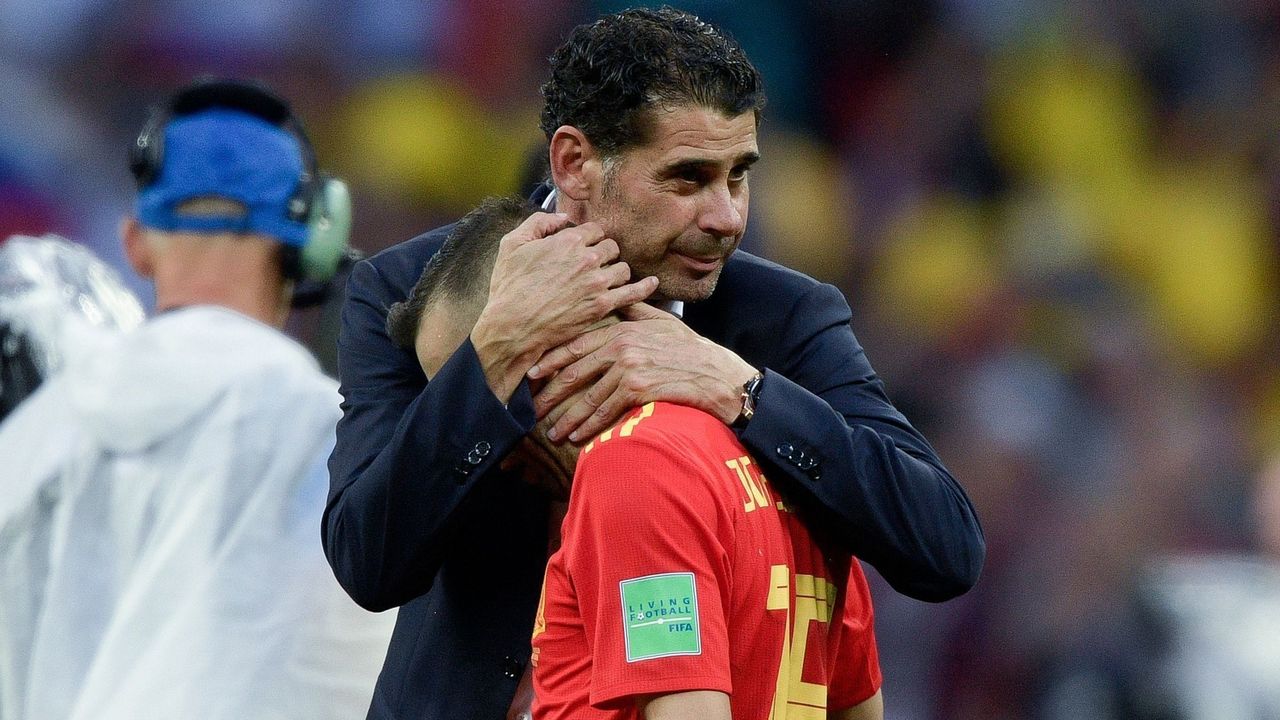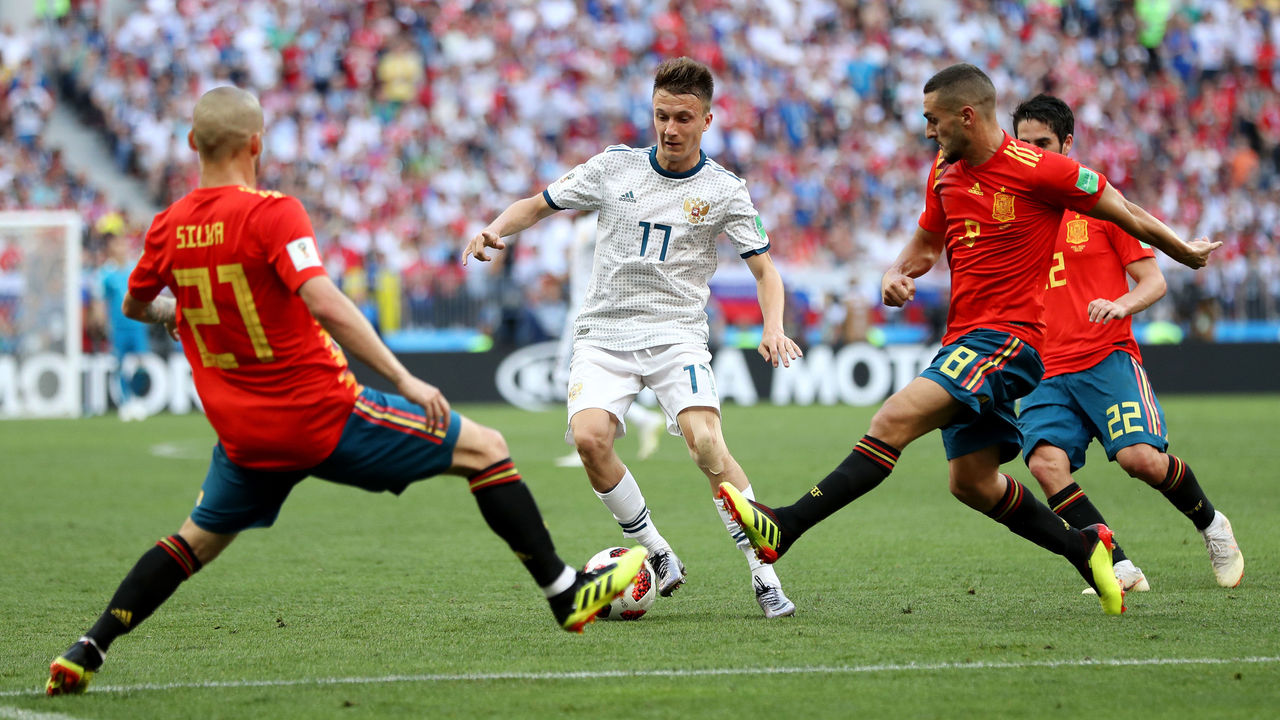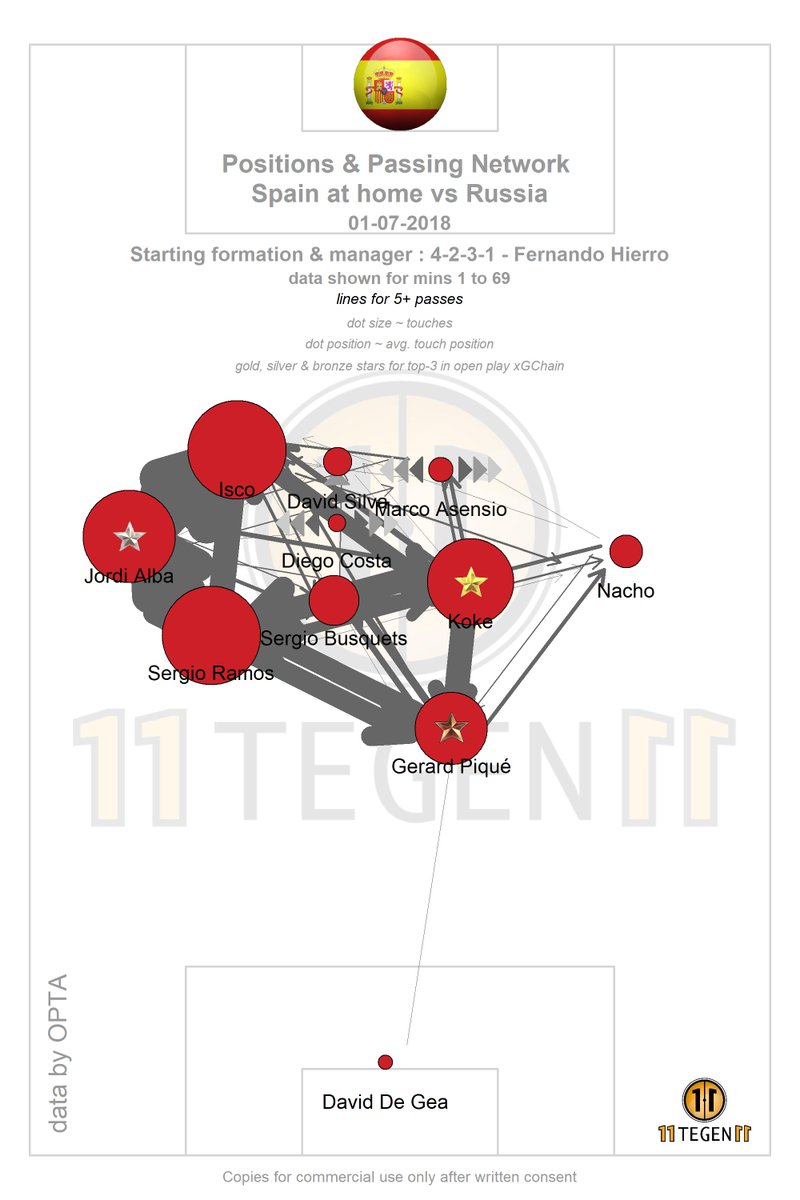Spain only has itself to blame for shocking World Cup exit
It didn't matter that Spain completed more than 1,000 passes against Russia. It didn't matter that Spain dominated the match with 74 percent of possession. The statistics that defined Spanish football for the past decade made no difference Sunday.
Russia kept Spain at bay for long enough to reach penalties, and the host nation took it from there, winning 4-3 on spot-kicks to book a place in the quarter-finals. Stanislav Cherchesov's side forced Spain to work for every blade of grass, his back five giving his team the width to keep the 2010 World Cup winner on the perimeter and out of dangerous areas.
Related: Russia shocks Spain on penalties to make quarter-final stage
It was nothing Spain hadn't seen before. La Roja slowly but surely picked apart teams that played the way Russia did. Patience always seemed to pay off.
Not this time. None of David Silva, Isco, Koke, or Andres Iniesta could find a breakthrough. The build-up play was laborious and tedious. Nearly half of Spain's passes went backward. The players kept resetting, hoping to bend Russia out of shape and find an opening. It never came. It was tiki without the taka.

Former Spanish international Cesc Fabregas suggested on BBC Sport that the time may have come to renounce tiki-taka football. However, it wasn't so much a failure of style as one of execution. Spain would usually end a leisurely passing sequence with a flurry of quick passes and touches, players moving in various directions to confuse the defenders. There was none of that in Moscow. Isco pulled off some nice flicks and dribbles, but very little of his and his teammates' play made progress up the pitch.
When the first half ended, Spain had registered just four touches in Russia's penalty area. The one goal it scored required a significant deflection.
"I think it's more possession to defend than attack, and it should be the opposite," Fabregas said.

It was even stranger to watch because Spain had a perfectly viable Plan B in Diego Costa. His bullying in the penalty area won his side valuable points in the group stage, and yet he was forced to fend for himself Sunday, dropping deeper than Silva and Marco Asensio at times just to get involved. Hopeful crosses were instead sent to the shortest players on the pitch. Silva and Iago Aspas leapt as high as they could, a hopeless exercise that summed up Spain's struggles in the final third.
It didn't help that Spain's attack favoured the left side of the pitch, showing little variety when it needed precisely that. Russia's opposing full-back, Mario Fernandes, handled Jordi Alba with expertise. With nowhere else to go, the ball was played back to Sergio Ramos, and on and on they went. No one dared to run into the half spaces between Russia's midfield and attack. No one came running for the ball. Spain deferred and deferred until the very last minute.

(Courtesy: @11tegen11)
Fernando Hierro's decision to play two holding midfielders also backfired. It made Spain flatter than it usually is, more one-dimensional in shape and less the living organism that the country's football tends to be. Only when Iniesta, Aspas, and Rodrigo came on did Spain actually ask questions of the Russian defenders. Suddenly they weren't so sure of their positions, especially as Rodrigo darted in behind with pace.
But it was too late. Spain was made to pay for its sterile football.
(Photos courtesy: Getty Images)
HEADLINES
- Henry scores 4 TDs vs. Packers as Ravens stay alive, help Bears win NFC North
- By the numbers: Henry joins top 10 all-time rushing list after epic game
- Jazz end Spurs' 8-game win streak
- Bulls' White irked by Giannis' 'disrespectful' dunk in final seconds
- NFL Playoff Picture: Postseason seeds, projected draft order